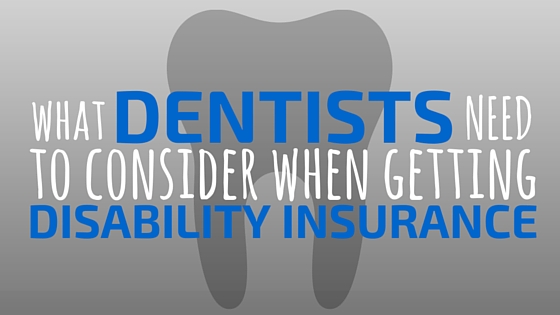What dentists need to consider when getting disability insurance

Recently, we talked about why it’s important for physicians who specialize in a particular field of medicine to make sure that their disability insurance covers their particular specialty. Dentists also need to be conscientious when getting a disability insurance policy for themselves.
An important factor to look at is how own-occupation or “own-occ” is defined when it comes to total disability. There are several definitions, depending on how the policy is written.
The best or “pure” one allows full benefits to be paid even when people are unable to work in a profession they were in at the time they filed a claim. Obviously, this is the most expensive option.
However, there are modified definitions of “own-occ.” With these policies, benefits are paid for a period of time — generally two to five years — when people are unable to perform the duties of their occupation. After that, it pays if the person is not “gainfully employed elsewhere.” The policyholder can decide whether he/she will work or not.
Another modified definition of “own-occ” pays if someone is “unable to work elsewhere” because they lack the experience, training or education to do so. This gives the insurer more control than the previous definition because they can challenge a person’s inability to work for those reasons.
A dentist obviously has to be able to perform certain functions in order to practice dentistry. Therefore, it’s essential that people in this profession look carefully at the terms of any disability insurance policy they consider to make sure that they and their families will receive some percentage of the income they are used to should the dentist be unable to practice.
An insurance professional can help explain all of the potential ramifications of each type of policy. If you do run into problems collecting on a policy, it may be helpful to find out what your legal options are.
Source: Dentistry IQ, “When doesn’t the own-occupation definition of total disability work? What dentists need to know,” Larry Schneider, Aug. 31, 2015


